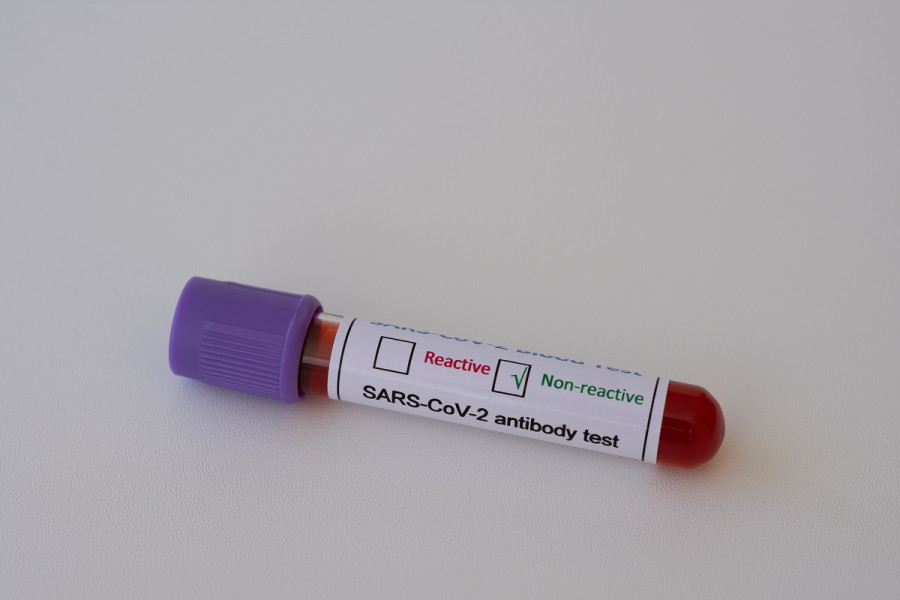Health
Seroprevalence study yet to be completed weeks after samples were collected
Experts say the delay in the study shows that the government is not doing anything to contain the spread of the virus and is only doing things to pretend it is doing something.
Arjun Poudel
The Ministry of Health and Population had decided to conduct seroprevalence surveys after the government ended a four-month-long nation-wide lockdown on July 21.
The seroprevalence survey was deemed necessary as it would provide data on the prevalence of the virus in the communities, and help authorities make strategies—locate hotspots, take necessary measures to contain the spread of the virus.
But even after three months, the study remains incomplete. It took more than two months for the Epidemiology and Disease Control Division to start collecting blood samples from people from various parts of the country.
“Now the sample collection has been completed, we have preserved them at the store of the National Public Health Laboratory,” Dr Basudev Pandey, director at the division, told the Post.
Officials at the Epidemiology and Disease Control Division said that tests of the samples collected from various parts of the country, including from the Kathmandu Valley have halted due to lack of testing kits, which should be supplied by the World Health Organization.
“Due to the delay in getting test kits from the World Health Organization, it took much time to test the samples.”
Doctor says a seroprevalence survey can provide an estimation on the percentage of people in a population with antibodies against SARS-Cov-2 (coronavirus) which causes Covid-19. This then can tell authorities how many people in a specific population may have contracted the virus.
Forty people had died and 17,994 were found to have been infected with the disease until July 21, the day the government ended the nationwide lockdown imposed on March 24.
As of Thursday, 1,052 people succumbed to the Covid-19 with 185,974 infected nationwide. In the last 24 hours 3,051 people tested positive with 18 deaths.
Public health experts say that the agencies concerned are procrastinating shows the lack of seriousness on their part in handling the pandemic, which had already claimed a thousand lives.
A serology test examines the presence of antibodies. When a human body is exposed to a foreign pathogen, it produces antibodies in response.
Serology tests look for either immunoglobulin m (igm) or immunoglobulin g (igg), the two antibodies developed by the human body against the virus. The igm is the first antibody developed by the immune system, so it is detected in the bloodstream first, within a week or two, followed by the igg, which is detected only two weeks after the infection.
“It shows how irresponsible the authorities are,” Dr GD Thakur, former director at the Epidemiology and Disease control Division, told the Post. “It seems that the government is not doing anything to contain the spread of the infection and it is only doing things to pretend it is doing something.”
He said that it is now getting late to conduct the study. “Had the seroprevalence study been carried out on time, decisions to take preventive measures could have been taken accordingly,” said Thakur.
Public health experts had been urging the government to increase tests, make contact tracing effective, isolate the infected, ensure supply of oxygen, increase the number of hospital beds intensive care units and ventilators, and impose restrictions in virus hotspots.
The government however, stopped providing free tests, and stopped contact tracing.
“I don’t understand why serological samples collected weeks ago have not been processed,” an official at the Department of Health Services, told the Post, asking not to be named.
Meanwhile, some experts are questioning the need for such a survey. “Results of the study won’t show the actual extent of the spread of the virus in the communities. It will only provide insights on the condition of a person at the time samples are collected,” Dr Prabhat Adhikari, an infectious disease expert, told the Post. “It neither helps in making strategies nor containing the spread of infection, instead it could mislead.”
“Results from the study will only be useful for certain people to get their names published in scientific journals,” said Adhikari.




 14.24°C Kathmandu
14.24°C Kathmandu















